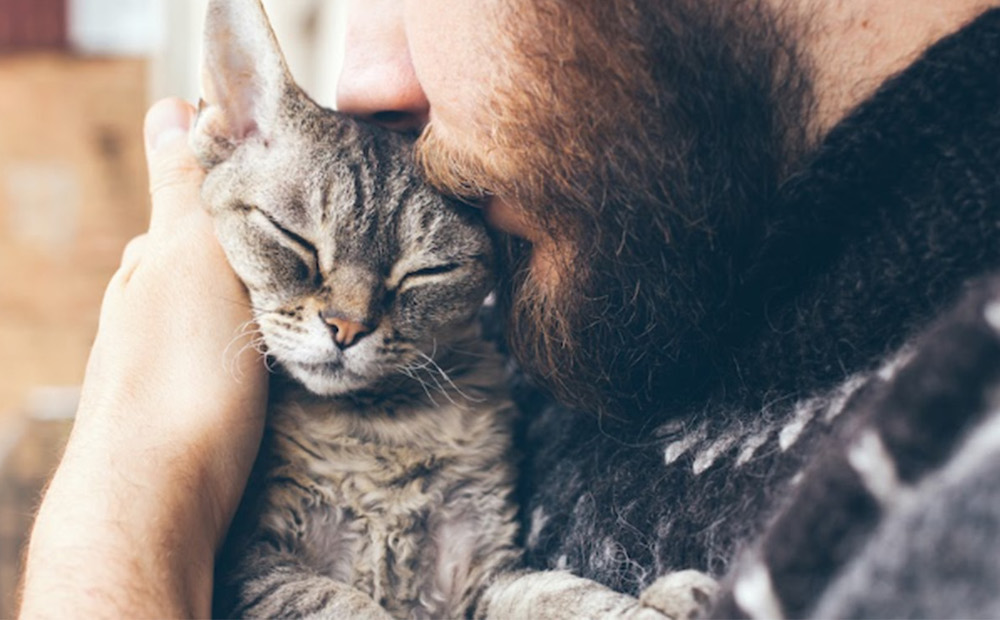
27 Apr Do Animals Have Emotions?
As someone who accompanies animals and is a veterinarian, I’ve often been asked and have asked myself this question. In light of my personal and professional experiences, I present my vision of this fascinating topic.
Animals of all species understand and react to the emotions we feel.
Any human having lived with an animal can answer this question. And yet, science is just starting to recognize that animals also feel emotions.
Certain journals such as Animal Science have published interesting research summaries or publications about jealousy 1, gratitude, revenge, and hope2 in animals. But emotions present in animals does not make unanimity.
However, what is beyond all doubt is that all animal species understand and react to the emotions we feel.3 Throughout my many years of veterinarian practice, I have regularly observed emotions such as frustration, powerlessness, jealousy, anger, sadness, depression, and guilt manifest in animals.
.
Have you ever observed other emotions with your animals?
How can we observe animal emotions and understand them?
An animal’s eyes and facial traits and expressions offer a wealth of information for anyone paying attention. Pupil size, eye movement, the eyelid’s degree of closing/opening, how their ears are positioned, skin tension and facial muscles, sounds it emits, body positioning, and piloerection are all telling indicators of the animal’s emotional state. Our brain can pick up and analyze these signals long before we understand: don’t you feel the impulse to run long before realizing that an animal is angry?
These particularities are also useful in understanding how pets feel. It still amuses me to hear our companion cat vocalizing in a very special way when she has to fish her food out of an interactive bowl or when she wants to play. And you can read it on her face when she’s afraid to go outside.
How about you? Can you detect your pets’ emotions?
What’s the point of knowing an animal’s emotions?
Understanding human and animal reactions allow us to display more compassion; just the same as when groups of people affected by cancer or alcohol dependence assist one another.
According to Dr. Iris Sholberg’s research4, the bond between humans and animals causes mutual influence on our reactions to stress.
For example, when going to the vet with a nervous or angry cat or dog. If you’re also nervous and anxious, your pet will feel it, which will increase their stress. It’s quite likely that the situation will quickly deteriorate if, in addition, the veterinarian is also experiencing stress.
On the other hand, understanding the animal’s stress and anger will allow you to stay calm and be patient, even if your pet growls, spits, or tries to bite. The calm you exude will automatically impact your pet, who’ll feel less fear and anger. The situation will be a more peaceful and calming experience, which will positively prepare your pet for the next visit.
And you, how do you feel during medical visits?
How to assist animals in feeling better.
According to Dr. Sholberg’s research, 4 cited above, the bond shared with a pet can become an excellent tool for assisting animals. Simply by taking the time to settle down, breathe consciously, and decrease our stress before interacting with them during stressful situations, pain, or illness. Take a moment to breathe and calm down before petting them, taking them to the kennel, or visiting them during hospitalization.
Being aware of the influence we have over one another can completely change the way we view animals, and we could mutually assist one another for the common good.
Have you ever experienced a situation like the one described above?
Feel free to share it with us on Facebook or in the comments section.
Looking forward to hearing from you! 🙂
Dre Madeleine Tremblay m.v. CoACc


No Comments